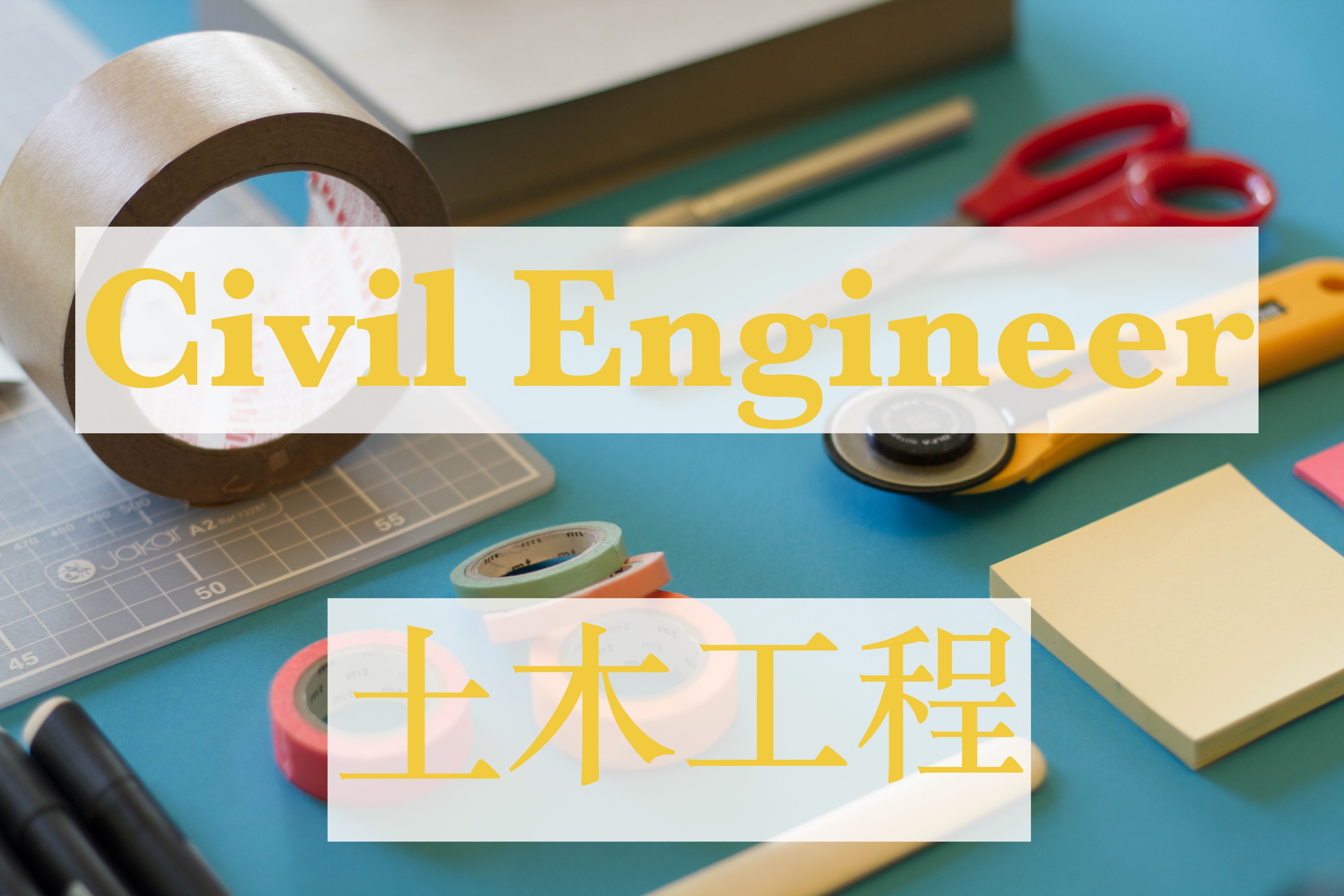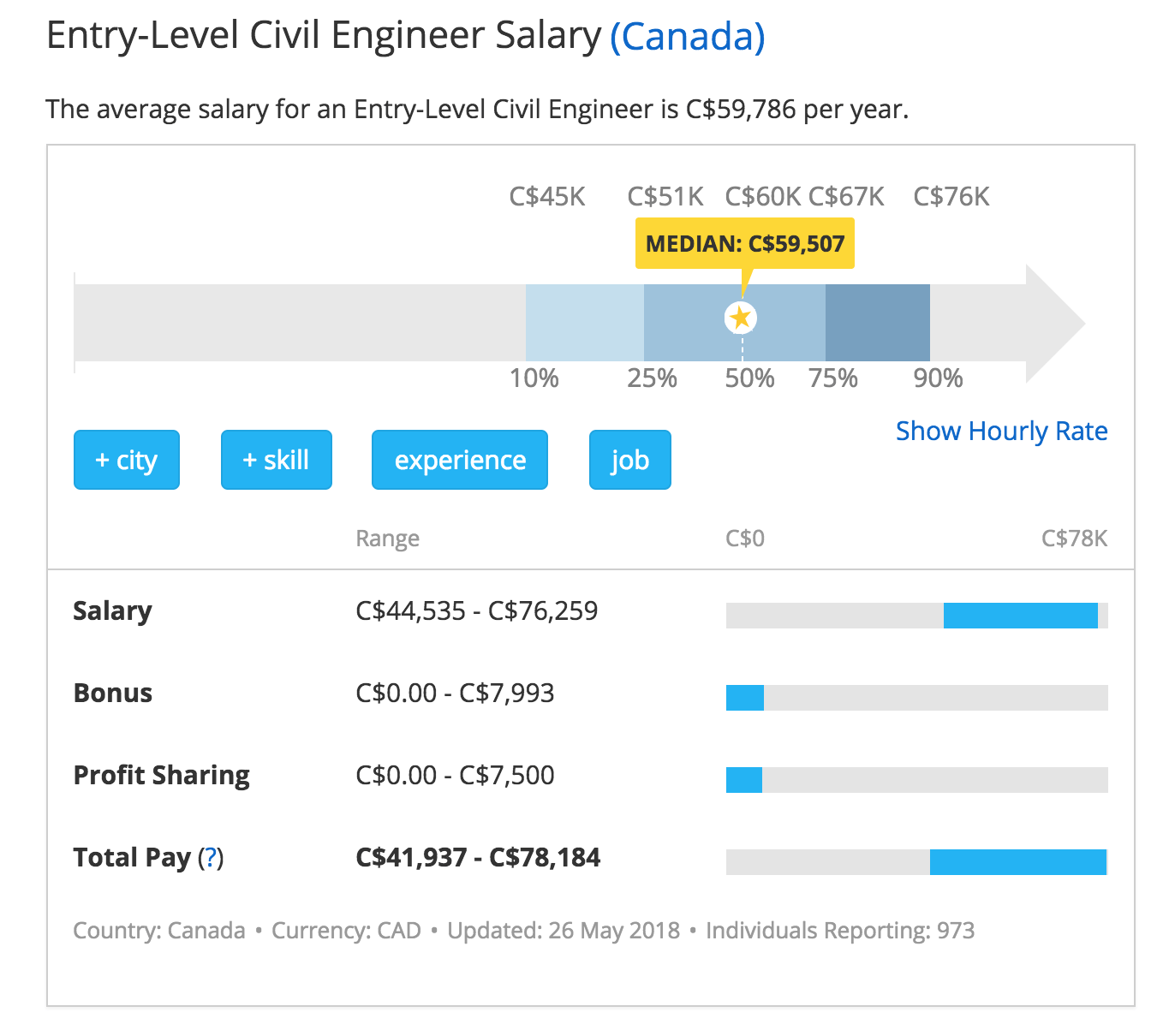By studying civil engineering at the university level, you can acquire the professional knowledge and skills that civil engineers need, providing a good foundation for various other occupations as well. So, what is the prospect of studying in this major in Canada? This article will cover the introduction of professional courses, employment prospects, professional rankings, professional skills taught, as well as the views of netizens and UtoCanada.

Photo by Jo Szczepanska on Unsplash
Introduction to Canadian Civil Engineering
Think about the following questions:
- Are you a detail-oriented and thorough-thinking person who likes numbers?
- Do you like work involving the application of engineering principles?
- Do you like to do detailed work, make decisions and supervise staff?
- Do you like diversity in the working environment?
- Do you like the sense of accomplishment of designing things?
- Would you like a high-paying, relatively stable career?
If your answer is yes, then the civil engineering major may be for you.
As a civil engineer, being detailed and precise is the main principle of the job. Therefore, this profession is academically rigorous. Students focus on learning the theoretical foundations of civil engineering science and design topics. They are also taught the skills required for the civil engineering profession, such as graphics, written and oral communication skills, etc. In fact, some civil engineering majors invest a lot of time in material testing, measurement, hands-on and computer-aided drawing training, and guided use of various engineering software tools.
Engineering Articles
- Majoring in Civil Engineering in Canada
- Majoring in Mechanical Engineering in Canada
- Majoring in Chemical Engineering in Canada
- Majoring in Electrical Engineering in Canada
- Majoring in Geological Engineering in Canada
- Majoring in Environmental Engineering in Canada
- Majoring in Computer Science in Canada
Employment prospects of Canadian civil engineering graduates
With a degree in civil engineering, you have a chance to become a civil engineer. So, what exactly do civil engineers do in Canada? As a civil engineer, you can participate in the planning, design and construction of airports, highways, dams and power projects, water supply and waste disposal systems, bridges, ports, industrial facilities, etc.
In recent years, the field of civil engineering has also expanded, including dealing with issues such as urban planning, transportation, and in some cases, biomedical projects.
Since a civil engineering program teaches you so many employment skills, having a civil engineering degree can also allow you to do other civil engineering-related positions.
》Possible employment positions for civil engineering graduates
As mentioned earlier, by studying civil engineering at the university level, you can acquire the professional knowledge and skills that civil engineers need, providing a good foundation for various occupations. Therefore, graduates can do more than civil engineering. In the following, we have selected some occupations that are related to this degree, or occupations that are not directly linked to civil engineering, but require similar skills.
Please note that these are not all thee positions that the civil engineers can have:
- Building inspector
- Construction Engineer: Planning and managing the construction of public and private buildings and facilities.
- Draftsman: Mainly utilizes CAD
- Civil Engineering Technician
- Concrete engineer
- Construction manager
- Construction Cost Estimator
- Licensed Development Technician
- Geotechnical engineer: provides information on soil conditions required to design and construct foundations, underground structures, tunnels, embankments and dams
- Infrastructure Engineer: Develop strategies to protect municipal infrastructure investment.
- Materials engineer
- Structural Engineer: As part of a team, they may include architects, mechanical and electrical engineers, construction contractors and project developers
- Traffic planner or transportation engineer: Planners and designers for safe and efficient transportation systems for goods.
- Urban planning technician or land development engineer: In coordination with urban planners to implement engineering solutions to transform land into functional communities
- Water Resources Engineer: Design systems to collect, store and distribute water.
Please note: Some occupations listed above require additional education, training and/or experience. For example, to take on government projects in Canada, you must obtain permission from a professional engineer (PE).
》Obtain the permission and certification of a civil engineer
You need toobtain a professional engineer’s (PE) permission (link to a government website)to directly control government projects and supervise other civil engineers and engineering technicians. The person in charge of your company needs to have a PE name in order to sell its engineering services to the outside world.
As a licensed professional engineer in Canada, the following conditions are usually required:
- A four-year bachelor's degree in a recognized engineering major
- At least four years (usually) with relevant work experience under the supervision of a professional engineer
- At the time of the background check, there are at least three recommenders
- Successfully completed the legal, professional ethics and professional recognition exams
》Institutions hiring civil engineers:
Generally speaking, employers recruiting civil engineering graduates include government agencies (local, provincial/state or federal), private industry or engineering consulting companies
- Local, provincial/state and federal governments:Government agencies are responsible for the design, construction and maintenance of urban, regional and even national infrastructure. Specifically, civil engineers employed by government agencies are mainly involved in the planning, design, construction, and improvement of bridges, airports, highways, public transportation systems, power projects, water supply, and garbage disposal systems.
- Companies providing construction, surveying, engineering and related services:Government agencies often hire private companies to design and construct various civil infrastructure projects. These private companies also hire a large number of civil engineers.
- Special industries:Civil engineers are also employed in some special industries. For example, the oil and gas extraction industry usually employs civil engineers to assist in the design and supervision of oil and gas extraction and refining facilities. Pipeline transportation is another industry that employs civil engineers to design pipelines and distribution routes for natural gas and other energy sources.
》Salary of civil engineering graduates: the decisive factors
The level of salary that can be obtained as a graduate of civil engineering majors can vary widely and usually depends on the following factors:
- Education level (Bachelor, Graduate, etc.)
- Whether you are ultimately engaged in civil engineering
- Whether you have a professional title (such as Civil PE)
- Amount of work experience accumulated
- The size and type of company
- Industry
- Employment location
These are factors that may affect your income. To make it easier to determine what you can earn, let’s take a look at the average salary of civil engineers.
According tothe 2013 Alberta Wage and Salary Survey Overview, the average annual salary working as part of the Civil Engineers Professional Group in Alberta is $92,054.
According tostatistics from PayScale,the average annual salary for entry-level civil engineers in Canada is $59,786.

Picture from PayScale
What do Canadian civil engineering students learn?
As a civil engineering student, you will have the opportunity to apply your knowledge through coursework and projects. In order to further develop the professional skills of the civil engineering profession, the degree program includes co-op opportunities in different periods.
Generally speaking, the courses of civil engineering include:
- Applied Hydrology
- Civil Engineering Chemistry
- Closed Hydraulic Systems
- Computer Aided Drawing
- Concrete Technology
- Civil Engineering Differential Analysis
- Geotechnical Analysis
- Graphical Communication
- Introduction to Civil Engineering
- Land Development Modeling
- Linear Algebra for Civil Engineering
- Material Mechanics
- Civil Engineering Physics
- Road Design
- Earth Mechanics
- Subdivision Design
- Civil Engineering Survey
- Wood and Steel Design
》Three civil engineering qualifications: college diploma, undergraduate degree, and graduate degree
Traditionally, a civil engineering credential can be obtained in three ways in Canada:
- Specialized Diploma:generally 2-3 years
- Bachelor's Degree:generally 4 years to complete
- Master’s degree:generally 2 years to complete
》What are the employment skills of civil engineering graduates?
Once you graduate from civil engineering, you need to prove that you have the following technical skills in order to be successfully recruited. The following list is what a company looks for when recruiting a civil engineer:
- Mathematical ability
- Project management skills
- Ability to analyze data, review calculations and prepare cost estimates
- Ability to work within budgets and deadlines
- Full understanding of the relevant laws and regulations
- Applicability of general construction methods and materials
- Ability to read blueprints, schematics, site drawings and plans
- Proficiency in basic Microsoft Office applications
- Ability to study complex technical problems and find innovative solutions
Best Schools for Civil Engineering
According toMacLean's latest program rankings of Canadian universities, the top 20 schools in engineering majors are:
1、University of Toronto (Engineering major)
2、University of Waterloo(Engineering major)
3、UBC(Engineering major)
4、University of Alberta(Engineering major)
5、McGill University(Engineering major)
6、University of Ottawa(Engineering major)
7、 Queen’s University(Engineering major)
8、Université de Montréal(University of Montreal Engineering major)
9、McMaster University(Engineering major)
10、University of Calgary (Engineering major )
11、University of Victoria (Engineering major)
12、Université Laval (Laval University - French institution)
13、Ryerson University(Ryerson UniversityEngineering major)
14、 University of Saskatchewan(University of SaskatchewanEngineering major)
15、Western University (Engineering major )
16、York University (Engineering major)
17、Dalhousie University (Dalhousie UniversityEngineering major)
18、Lakehead University (Engineering major)
19、Simon Fraser University(Engineering major)
20、Concordia University(Engineering major)
Summary: UtoCanada’s views on the civil engineering profession
Everyone who has been in Canada for a long time knows that civil engineering is actually a field with very good employment prospects: a high starting salary, a stable job, easy immigration, high social status (North America has a association of engineers), and a long career path. However, a good profession does not mean that anyone can do it. We have always advocated that students need to understand themselves first and predict whether they are suitable for an industry (*It is worth noting that because many civil engineering jobs involve construction site surveys and participation in project implementation, so it may not be very suitable for girls).
Additionally, in order to quickly find your first job in civil engineering after graduation, we recommend that you prepare for the following during university/college:
- Learn the skills in your major and earn a good-looking transcript
- Develop necessary soft skills (including, improve your English through various methods before graduation)
- Create your own portfolio
- Establish a network in civil engineering
"Learn the skills within the profession," your parents will constantly say this to you. So, we won't need to say much here. Let’s focus on a few other things.
》“Soft skills” to be acquired during the university
If you want to become a civil engineer, in addition to professional skills, you actually need a lot of necessary soft skills in the workplace. Without these soft skills, performing many operations will be very difficult.
Some soft skills are:
- English language proficiency
- Ability to analyze large amounts of data
- Ability to make decisions with confidence
- Ability to explain design ideas and plans clearly and verbally
- Good teamwork ability
- Excellent logical thinking and problem solving skills
- Ability to balance the overall situation and details
》Establish a portfolio
The portfolio can help display the areas you really have experience in. The portfolio is actually more detailed than your resume, and it shows your skills and potential to employers. At present, there are many portfolio-building platforms (such as WordPress or Mix) and tutorials on the market. You can easily build your own personal portfolio website.
So, what should you include in your engineering portfolio to best reflect your ability?
-
- A brief self-introduction:focus on your strengths, educational background and qualifications
- A resume with a focus on engineering:remove irrelevant work experience
- Detailed information about your coursework, internships and the projects you are working on
- Letter of recommendation:or reference letter from the institution where you worked/interned (if you have just left school, a letter of recommendation from your internship employer or your professor is the best choice for establishing credibility)
- Examples of projects you have participated in or other skill demonstrations:this is an opportunity for you to be creative.
》Build your network in civil engineering
Sometimes, what matters is not what you know, but who you know. In North America, the workplace is also very particular about personal referrals. When someone mentions you at the right time and place, it is better than you submitting a hundreds of resumes.
You may be thinking: How can I effectively expand my network in this field while still studying at school? You can refer to the following ideas:
- Alumni Association:Your alumni association is a good place to start establishing engineering contacts. Most universities and colleges will have an alumni association that you can join. The benefit of joining the alumni association is that you connect with people who have worked in your industry
- Professors and classmates:Don't underestimate the value of building relationships through your school years. Professors often work on-site before or outside of their teaching hours and may provide you with advice on where to find work. They also see countless other students graduating and know well about how previous students found employment after graduation. They are also very informative, just like your classmates who work withyou on projects.
- Civil Engineering Professional Association:In Canada, each province has a professional association that engineers can join. In addition to government-run associations, there are other associations in many fields that are worth joining. For example, as a civil engineer, you may find that local associations in your field can help you to realize your interests and career goals. These associations often have resources to help members connect or find jobs.
Bonus: Engineering Institute of Canada
Reference article:
- https://www.academicinvest.com/business-careers/finance-careers
- https://www.monster.com/career-advice/article/find-your-first-finance-job
- http://www.sinoca.com/job/news/2009-02-09/26568.html
- Introduction to Canada's Financial Industry
- Finance Degree
- https://www.monster.ca/types-of-careers/finance-careers
- http://info.vanpeople.com/m/article.php?itemid=136763















